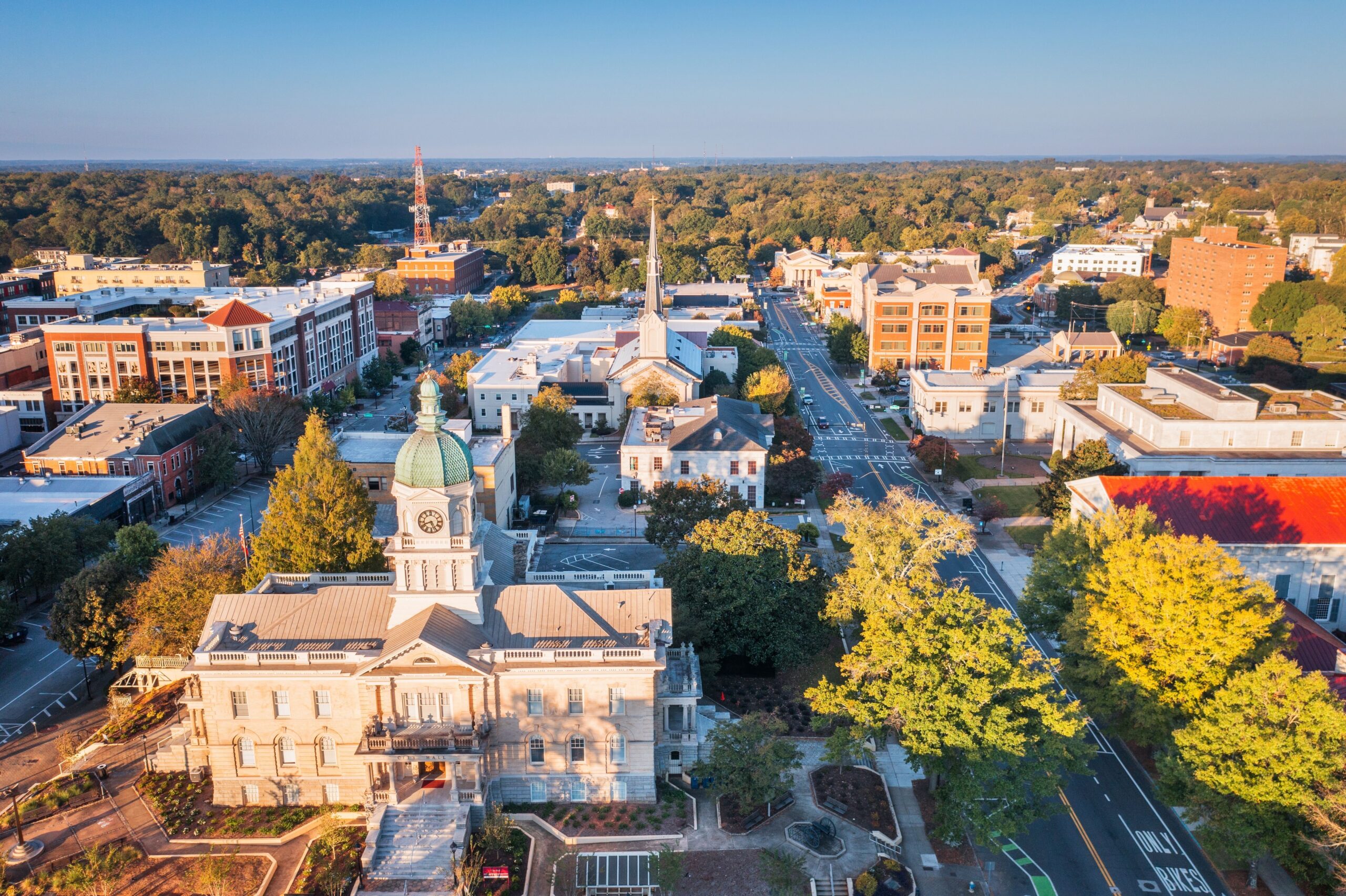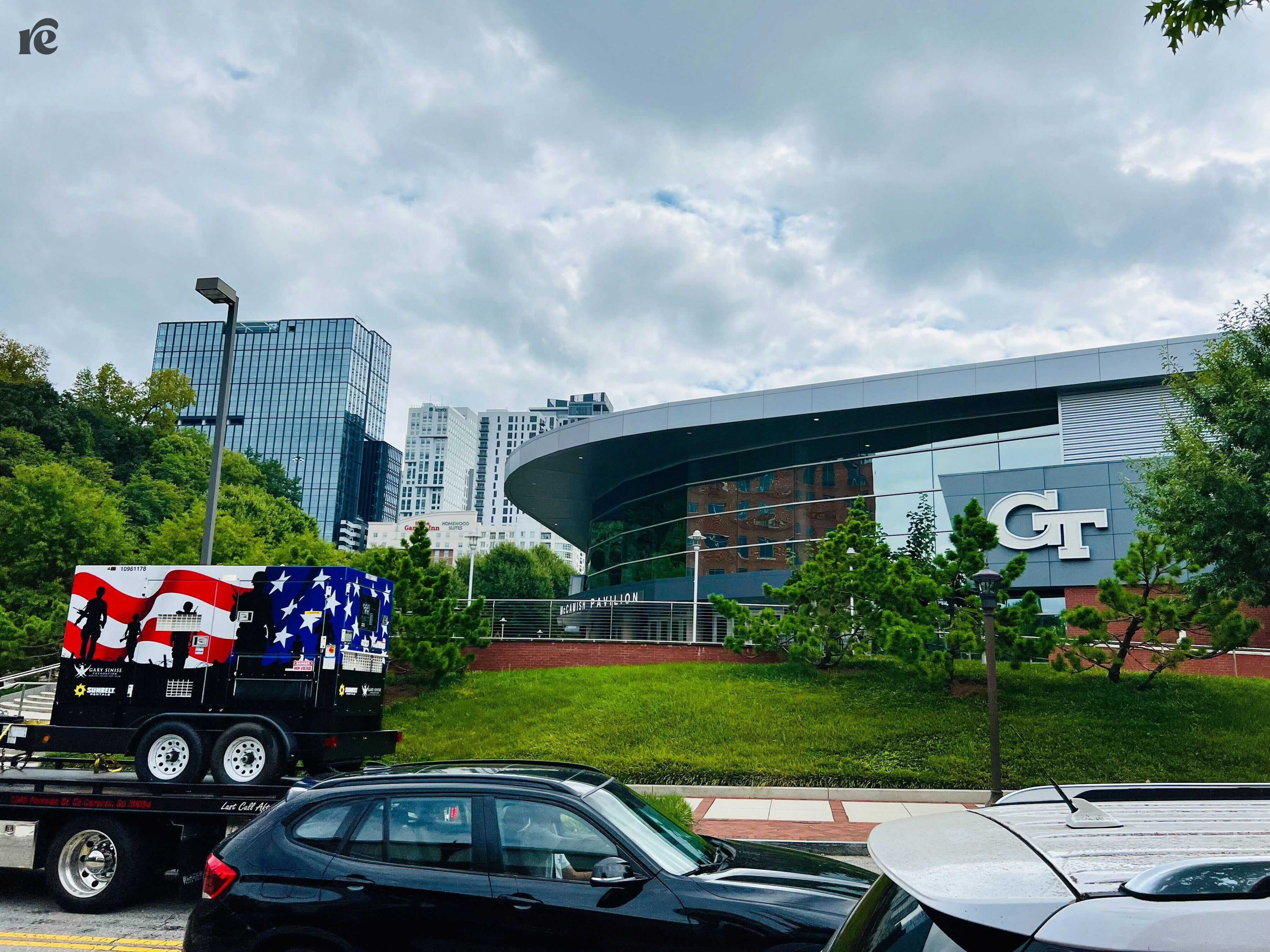
These three Georgia universities are working overtime to get out the vote after 2020
Check out the rest of our Campus Dispatch stories here. The rest of Campus Dispatch’s stories can be found here. These campaigns encourage as many people to go to the polls as possible on November 5 to fulfill their civic duties. Civic Nation reports that the number is even higher in battleground states. According to Civic Nation, the number of 18- to 24-year-olds registered to vote is higher in battlegrounds states. In the most recent elections, the number of young adults who registered to vote has also increased. According to the Washington Post, in 2020, 66 per cent of college students registered voted, which is a 14-point increase over the 2016 election. We took a look at how some universities across the state are encouraging students to vote this November.
Georgia College and State University
Austen Risolvato/Rewire News Group
Research has shown that presentations in class by professors and other students can increase registration, but not voter turnout. Claire Sanders, senior lecturer of political science at Georgia College State University and a public administrator, has taught students the importance of elections. Sanders offers an election administration program, a unique program not only in Georgia but across the nation. Students can take on a variety of roles, including those as poll workers. Students can do an internship at a local, state or federal level in election administration. According to Sanders, the program works with local governments to help set up the internships.
“The reason why we developed this election certificate program is to encourage public service in this area,” Sanders said. “Elections are probably the most critical public service that the government provides.”
GCSU founded their certificate this most recent academic year, and has about ten students, according to Sanders. In 2022, GCSU won the Civic Nation’s All in Campus Democracy Challenge for being a “most-engaged campus” when it comes to student voting. According to the National Study of Learning, Voting, and Engagement, more than 76 percent of GCSU students voted in the 2020 presidential election, surpassing the 66 percent national average.
“It’s important that students understand the issues of equality and voting rights and the history of past legalized discrimination in voting, why we have the voting laws that we have now,” Sanders said.
GCSU also hosts other initiatives to encourage student involvement in the democratic process. Sanders and Professor Jan Hoffman host weekly discussions with students on current events. While Sanders is more involved with the election administration certificate, Hoffman serves as the campus’ American Democracy Project coordinator and works to help students register to vote.
University of Georgia
Sean Pavone/Shutterstock
Hunter Leon, president of the Conservative Student Union at the University of Georgia, said it is important for college students to fulfill their civic duty to get educated and vote in honor of the fact that it is an opportunity not available to everyone.
CSU, a nonpartisan conservative student club, hosts discussions on a variety of political topics to allow students to form their opinions and hear from others.
“I think people being exposed to different ideas from all sorts of students is important to be able to form their own opinion,” Leon said.
Every election year, CSU tables on campus to help students register to vote. CSU is not the only group to do this. In fact, not all tablers are even UGA students.
Indivisible GA 10, a chapter of the pro-democracy grassroots group Indivisible, can frequently be spotted encouraging students to get registered, cast their vote, and be involved in holding elected officials accountable, according to its website. The group is based in Georgia’s Tenth District, which includes Athens–where UGA is located–and is made up of community members of all ages, races, and genders.
Their goals include efforts to “increase voter turnout, end voter suppression, improve election integrity, accomplish fair redistricting results, and ensure all Georgians have the same opportunities to thrive regardless of race, gender, sexual preference, or belief.”
Georgia Tech
Austen Risolvato/Rewire News Group

Georgia Tech has multiple resources to encourage students to get involved with the democratic process. VoterTech is a nonpartisan voting information hub that “investigates factors that affect voter turnout among college students.” The project lasted from the 2020 to 2022 election cycles, but much of the information still applies today. VoterTech is a nonpartisan voting information hub that “investigates factors that affect voter turnout among college students.” The project lasted from the 2020 to 2022 election cycles, according to Georgia Tech associate professor Richard Barke, but much of the information is still relevant today.
The campus also has a chapter of Voters of Tomorrow (VOT@GT), “a nonpartisan, pro-democracy organization that seeks to educate, mobilize, and represent our generation of voters.” Alexa Bowman Olay, who currently serves as president, founded the chapter during the fall 2022 semester, ahead of the midterm elections.
Bowman Olay is passionate about encouraging young people to vote, regardless of their political beliefs, and countering the notion that an individual’s vote doesn’t matter. Being politically active can be time consuming, but voting is an easy way to get involved, she said.
“Our main goal is to really encourage our generation to be politically involved in whatever way or whatever capacity they feel comfortable in,” Bowman Olay said.
VOT@GT works to provide access to information and resources for in-state and out-of-state Georgia Tech students, like tabling at events and hosting a meeting with a Gen Z state senate candidate.
“You’re never too young”
An increase in student voter turnout can have widespread impacts. By using their influence as citizens, young adults can have a voice in the decisions that are made at the local, state and federal level. Bowman Olay stated that many people don’t have the time to be politically active. They may not go out and protest or visit their local senators to talk with them. “And so even something as small as going out to vote is still doing something.”

“You’re never too young,” Leon said. “Every voice matters.”
